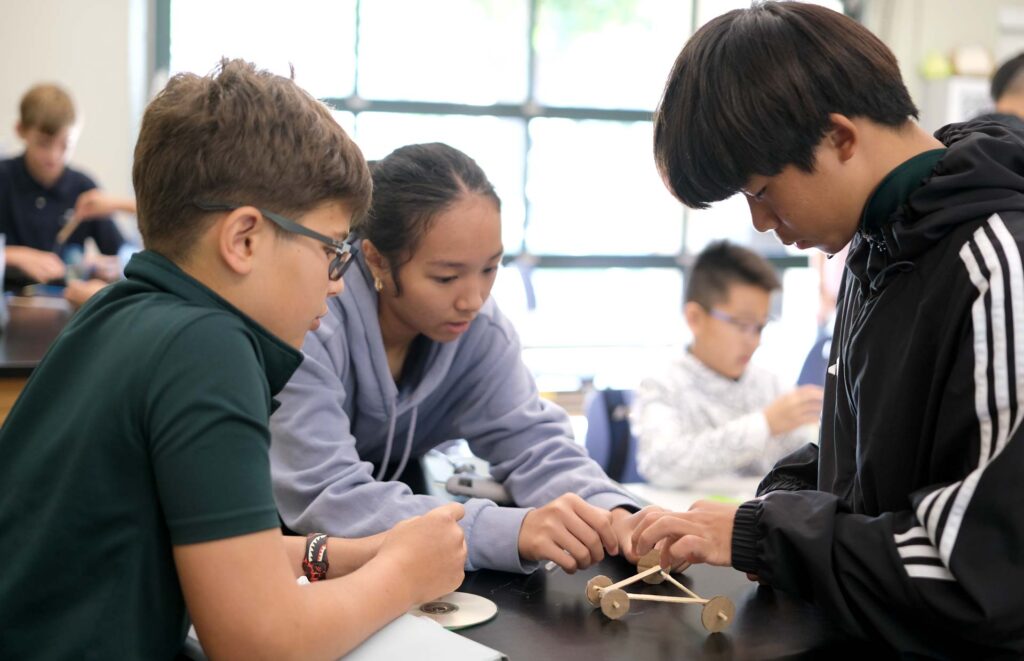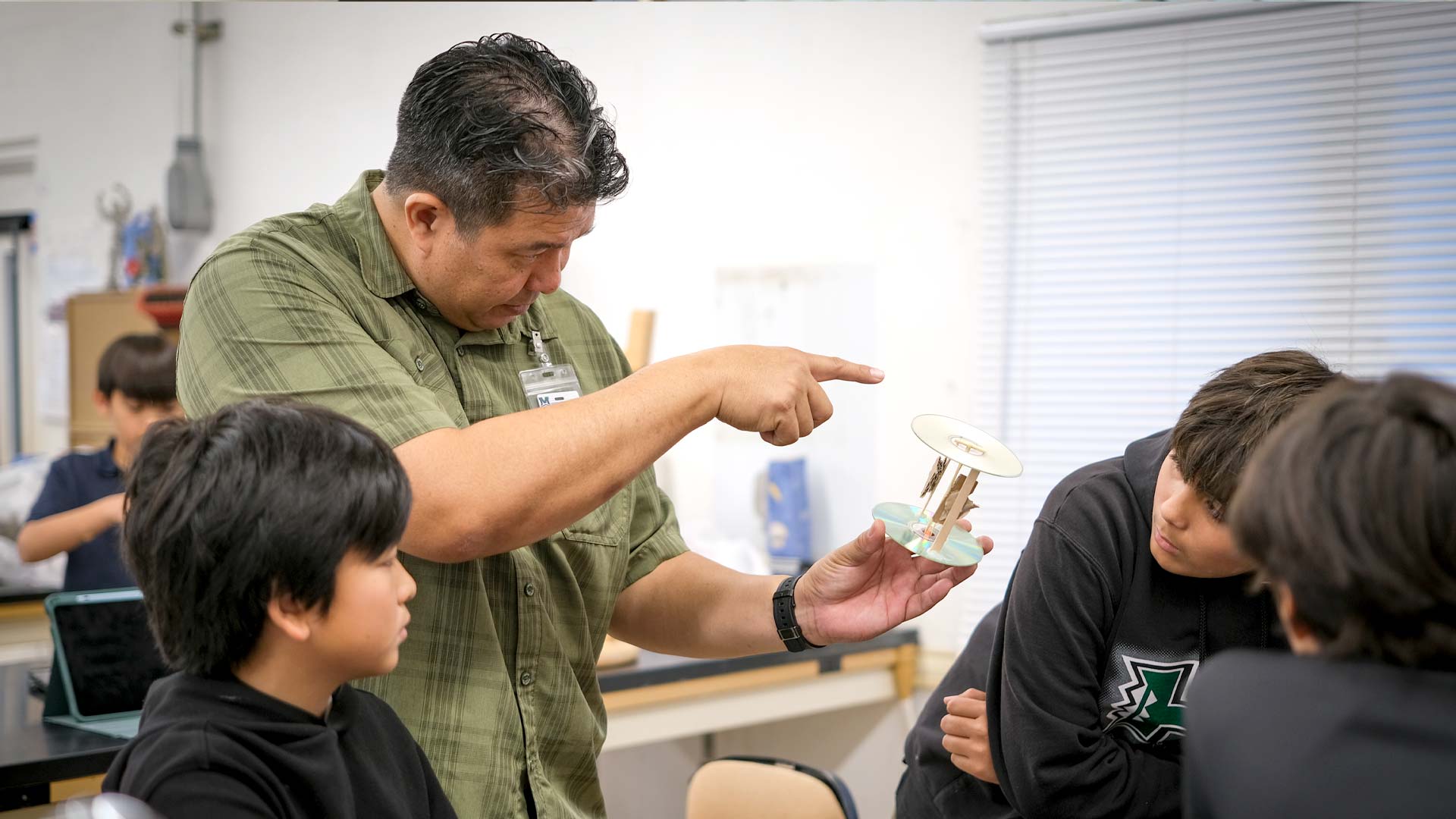At Mid-Pacific, learning goes beyond textbooks and traditional lectures. It’s an experience rooted in exploration, critical thinking, ideation, and iterative problem-solving. This is particularly evident in the Middle School Science Department, where the curriculum is designed around experiential learning—students don’t just read about scientific principles; they apply them. Instead of passively absorbing information, they actively engage with phenomena-based learning, where curiosity drives discovery.
“Our philosophy is student-centered,” said Annette Lee, a middle school science teacher at Mid-Pacific. “Instead of just explaining concepts, we provide students with experiences that let them explore and discover.”
From designing earthquake-resistant structures to developing sustainable penguin habitats that address climate change, students engage in real-world scientific inquiry. In these projects, students learn core scientific principles, but most importantly, they develop critical thinking, problem-solving skills, and teamwork, which are essential for success in today’s fast-paced, innovation-driven world.
 One of the most anticipated events in Mid-Pacific’s science program is Engineers Week, an annual week-long celebration of innovation, engineering, and technology. This year’s engineering challenge—the Middle School Science Distance Derby—tasked students with designing and building energy-efficient model cars using two CDs, cardboard, rubber bands, skewers, and straws. The goal? To create the car that traveled the farthest, demonstrating the most efficient conversion of potential energy into kinetic energy.
One of the most anticipated events in Mid-Pacific’s science program is Engineers Week, an annual week-long celebration of innovation, engineering, and technology. This year’s engineering challenge—the Middle School Science Distance Derby—tasked students with designing and building energy-efficient model cars using two CDs, cardboard, rubber bands, skewers, and straws. The goal? To create the car that traveled the farthest, demonstrating the most efficient conversion of potential energy into kinetic energy.
Throughout the week, students worked in mixed-grade teams, collaborating and refining their designs through trial and error. The excitement culminated in a live competition in Bakken Auditorium, where each car was tested in front of the entire middle school. The winning team not only demonstrated a deep understanding of energy conversion, but also showcased the power of teamwork and perseverance.
“Competition naturally engages students,” Lee explained. “It’s amazing to see how much effort they put into refining their designs, testing, and improving based on what they learn from failure. That’s real-world science in action.”
 The success of Mid-Pacific’s middle school science program is evident in the confidence and enthusiasm of its students. Beyond academic success, the program fosters a lifelong love of learning, instilling in students the skills and mindset they need to make a positive impact in their communities and the world.
The success of Mid-Pacific’s middle school science program is evident in the confidence and enthusiasm of its students. Beyond academic success, the program fosters a lifelong love of learning, instilling in students the skills and mindset they need to make a positive impact in their communities and the world.
“Our goal is to help students see science as more than just a subject,” said Lee. “It’s a way of thinking—an approach to solving problems, asking questions, and making a difference.”

